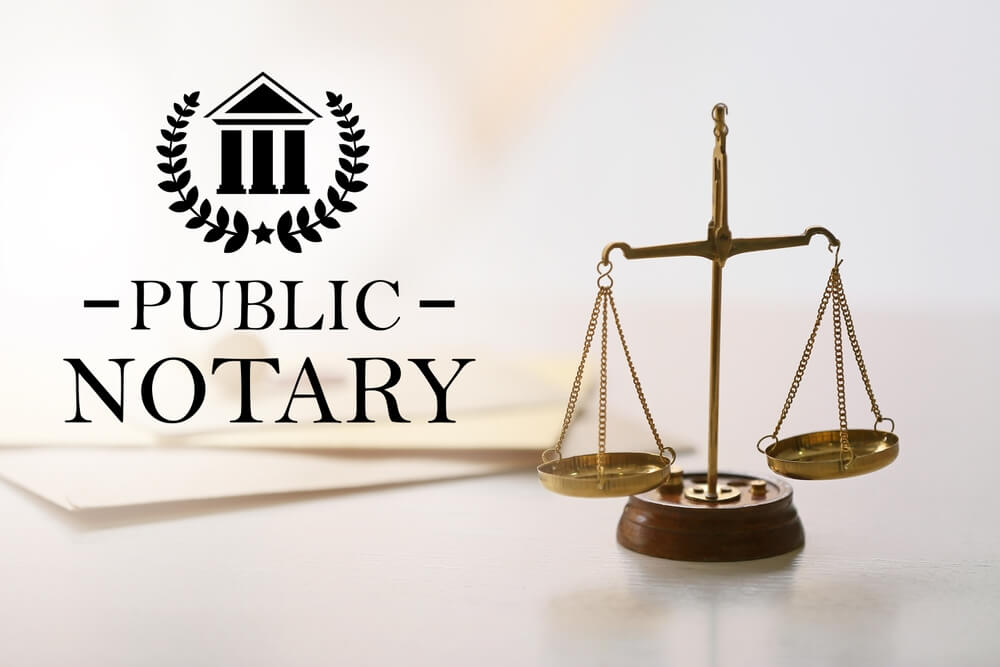Certified Notary Services: Making Sure Lawful Credibility and Security
Certified Notary Services: Making Sure Lawful Credibility and Security
Blog Article
Demystifying Notarial Job: Simplifying the Role and Value of Notaries
In the intricate internet of lawful documentation and verification, notaries stand as pillars of assurance and credibility. Their role, commonly shrouded in secret for lots of, carries significant weight in making certain the credibility and integrity of critical papers. As guardians of validity and fact, notaries play a crucial part in our culture, yet their job is not always fully understood. By deciphering the intricacies dropping and surrounding notarial techniques light on the relevance of their acts, a clearer understanding arises of the crucial function notaries play in supporting the textile of contractual and legal arrangements.
The Background of Notarial Work
The history of notarial job days back to old people, where scribes played an essential function in taping crucial info and validating documents. This led to the growth of notaries, people assigned by the state to act as unbiased witnesses in legal matters.
During the Center Ages, notaries gained importance in Europe, with their features broadening to consist of drafting legal documents, certifying trademarks, and maintaining records. The rise of global trade additionally stressed the importance of notarial job in validating contracts and agreements across boundaries.
In the contemporary age, notaries remain to play an important duty in lawful and organization transactions by verifying identifications, validating the credibility of files, and avoiding fraudulence. Their role in licensing the legitimacy of contracts adds a layer of protection and depend the ever-evolving landscape of commerce and regulation.

Obligations and Responsibilities of Notaries
Notaries play an important duty in validating the authenticity of documents and the identification of signatures. One of their primary responsibilities is to witness the signing of vital files, such as wills, deeds, and agreements, to make sure that all parties are entering into contracts purposefully and willingly.
Additionally, notaries are entrusted with administering affirmations and vows, which are crucial in legal proceedings and the implementation of testimonies. They license copies of original documents, supplying assurance to organizations that the copies are real reproductions of the originals. Notaries must preserve exact records of all deals they supervise to make sure openness and accountability. In general, the duties and obligations of notaries are essential in guarding the honesty and legality of various documents and deals.
Notarial Certificates and Signatures
Exemplifying meticulous interest to detail, notarial certifications and trademarks act as vital components in validating the credibility of lawful records. Notarial certificates generally contain essential details such as the date of notarization, special info the names of the signatories, a summary of the paper, and the notary's official seal. These certifications supply a clear document of the notarial act, guaranteeing that the paper can be easily recognized and mapped back to the notary that looked after the process.
Signatures play a pivotal function in notarial work, as they represent the agreement and approval of the events involved. Notaries meticulously witness the signing of documents to validate the identification of the notaries and verify that they are signing of their very own complimentary will. By fastening their main seal and trademark to the paper, notaries license that the necessary treatments have actually been complied with which the file is legitimate and enforceable.
In significance, notarial certifications and trademarks are the trademark of authenticity in lawful deals, offering guarantee to all events included that the files are legitimate and binding.
Value of Notarial Acts

Notarization Process Explained
The notarization process typically begins with the private offering look these up the record to a notary public. Once the identification is validated, the notary guarantees that the private authorizing the paper does so voluntarily and without any type of coercion.

Conclusion

Notarial certificates normally include important information such as the date of registration, the names of the notaries, a summary of the paper, and the notary's main seal. These certifications give a clear document of the notarial act, ensuring that the document can be conveniently identified and mapped back to the notary that oversaw the procedure.
By attaching their official seal and trademark to the paper, notaries certify that the essential treatments have been adhered to and that the document is legitimate and enforceable.
By confirming the identification of the signatories, validating their readiness to enter into the agreement, and licensing the date and area of the finalizing, notaries play a crucial role in upholding the legitimacy of lawful papers.After the paper is authorized, the notary will certainly attach their official seal or stamp onto the paper.
Report this page